All Formats & Editions
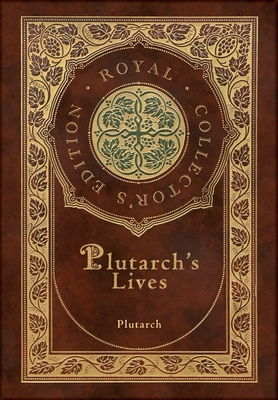
Plutarch's Lives, The Complete 48 Biographies (...

Plutarch's Lives (The Lives of the Noble Grecia...

The Complete Collection of Plutarch's Parallel ...
Plutarch, later named, on his becoming a Roman citizen, Lucius Mestrius Plutarchus, c. 46 - 120 AD, was a Greek historian, biographer, essayist, and Middle Platonist known primarily for his Parallel Lives and Moralia. Plutarch lived most of his life at Chaeronea, and his duties...
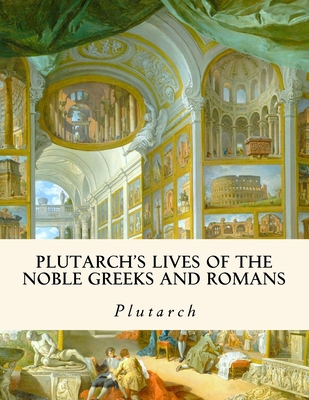
Plutarch's Lives of the Noble Greeks and Romans
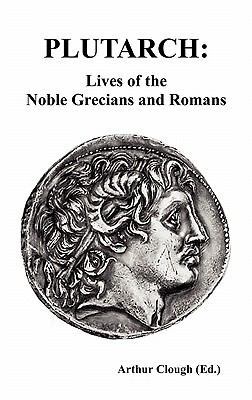
Plutarch: Lives of the noble Grecians and Roman...
ONE OF THE FEW COMPLETE AND UNABRIDGED EDITIONS OF PLUTARCH'S LIVES--all fifty biographies, and eighteen comparisons. "I would rather excel in the knowledge of what is excellent than in the extent of my power or possessions." Plutarch...
![Vidas Paralelas (Spanish Edition) [Spanish] B08P1KLQS2 Book Cover](https://m.media-amazon.com/images/I/51c1MGz+92L._SL500_.jpg)
Vidas Paralelas (Spanish Edition) [Spanish]
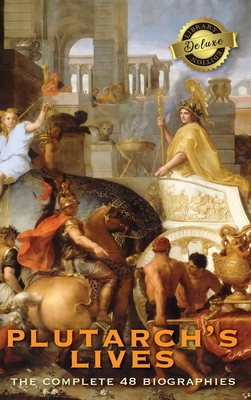
Plutarch's Lives, The Complete 48 Biographies (...
Plutarch's Lives of the Noble Greeks and Romans, commonly called Parallel Lives or Plutarch's Lives, is a series of 48 biographies of famous men, arranged in tandem to illuminate their common moral virtues or failings, probably written at the beginning of the second century...

Plutarch: The Lives of the Noble Grecians and R...

Plutarch's Lives

Lives of the Noble Grecians and Romans
Plutarch's Lives of the Noble Grecians and Romans is a series of biographies, arranged in pairs illuminating virtues & vices. As explained in the opening of his Life of Alexander, he wasn't concerned with history so much as the influence of character on life & destiny. Whereas...

Plutarch's lives (Everyman's library)
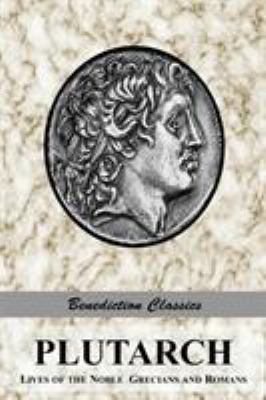
Plutarch: Lives of the noble Grecians and Roman...
ONE OF THE FEW COMPLETE AND UNABRIDGED EDITIONS OF PLUTARCH'S LIVES--all fifty biographies, and eighteen comparisons. "To be ignorant of the lives of the most celebrated men of antiquity is to continue in a state of childhood all our...

Plutarch's Lives, Complete and Unabridged in On...
![Antología Plutarco: Vidas paralelas (con notas)... [Spanish] 1539480259 Book Cover](https://i.thriftbooks.com/api/imagehandler/l/0128416BA53082BF7D31905F516F99238672D334.jpeg)
Antología Plutarco: Vidas paralelas (con notas)... [Spanish]
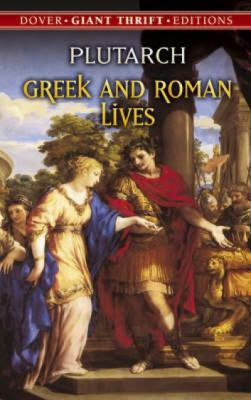
Greek and Roman Lives

Plutarch's Lives

PLUTARCH'S LIVES : Lives of Noble Grecians and ...
![VIDAS PARALELAS (SC026) [Spanish] 9700757552 Book Cover](https://m.media-amazon.com/images/I/51u-3J6sWkL._SL500_.jpg)
VIDAS PARALELAS (SC026) [Spanish]

The Lives of the Noble Grecians and Romans

Plutarch's Lives of the Noble Grecians and Roma...
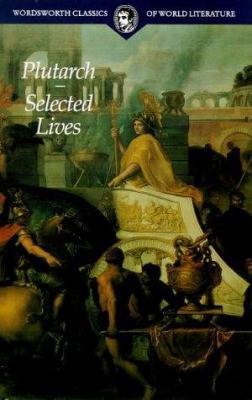
Lives of the Noble Grecians and Romans

Plutarch's Lives of Illustrious Men (1876)
Plutarch's Lives Of Illustrious Men is a historical biographical work written by the ancient Greek historian Plutarch in the 1st century AD. The book contains a collection of 46 biographies of famous Greek and Roman figures, including Alexander the Great, Julius Caesar, and Cicero...
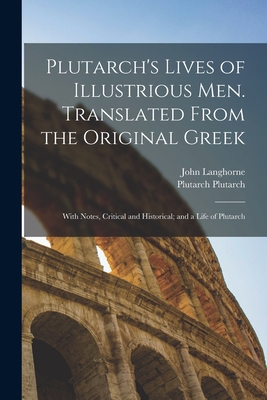
Plutarch's Lives of Illustrious men. Translated...
This work has been selected by scholars as being culturally important, and is part of the knowledge base of civilization as we know it. This work is in the "public domain in the United States of America, and possibly other nations. Within the United States, you may freely...

Plutarch's Lives
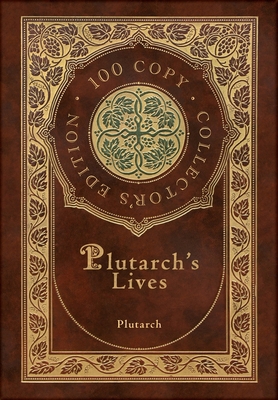
Plutarch's Lives (100 Copy Collector's Edition)
Plutarch's Lives of the Noble Greeks and Romans, commonly called Parallel Lives or Plutarch's Lives, is a series of 48 biographies of famous men, arranged in tandem to illuminate their common moral virtues or failings, probably written at the beginning of the second century...



